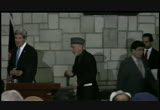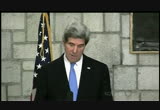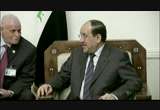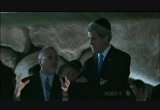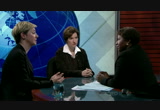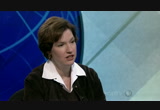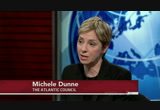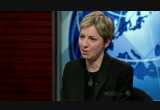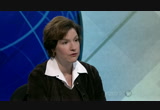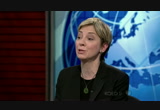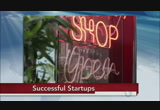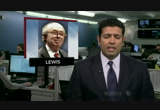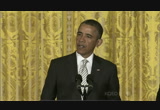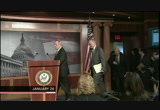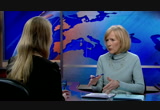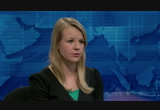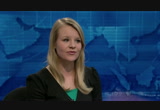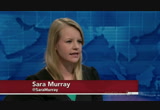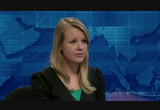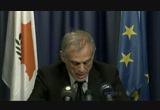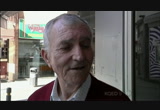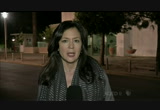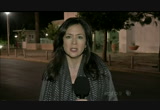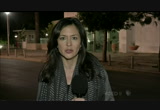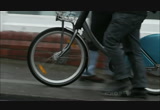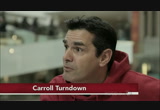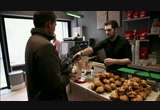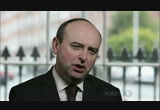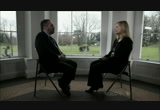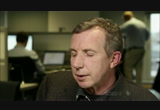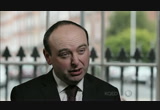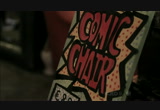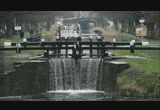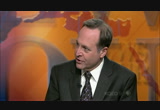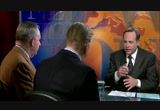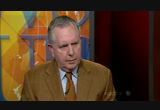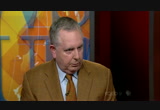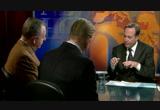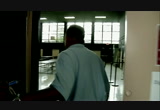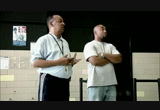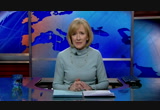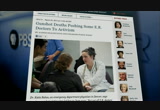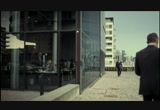tv PBS News Hour PBS March 25, 2013 3:00pm-4:00pm PDT
3:00 pm
literacy in the 21st century. >> and with the ongoing support of these institutions and foundations. and... >> this program was made possible by the corporation for public broadcasting. and by contributions to your pbs station from viewers like you. thank you. >> ifill: a recent chill in u.s.-afghan relations showed signs of a slight spring thaw today. it came as america's top diplomat sat down with afghanistan's leader to hash out differences. frantic was today's watch word as secretary of state john kerry made an unannounced visit to kabul meeting with president hamid karzai and smoothing over u.s.-afghan tensions at a joint news conference. >> i appreciate enormously our friendship. and i know that you share with
3:01 pm
me a sense that this next year could well be one of the most important in the modern history of afghanistan. >> ifill: the show of unity followed new flare-ups as the u.s. winds down its combat mission there. after a deadly bombing this month, karzai was quoted as saying the u.s. colluded with the taliban to destabilize his country and to justify a continued u.s. presence beyond the december 2014 pullout date. today though he denied he had made that charge. >> there is a collusion? i never used the word "collusion" between the taliban and the u.s. those were not my words. those were picked up by the media. >> ifill: kerry in turn said he had reached an understanding with karzai on the matter. >> we're on the same page. i don't think there's any disagreement between us. i'm very, very comfortable with the president's explanation. >> ifill: there was progress too
3:02 pm
on another karzai demand: the return of afghan prisons to afghan control. >> this ceremony is important and it's meaningful. >> ifill: today u.s. general joseph dunnfordford formally handed over the last jail under u.s. control outside kabul. all in all, said karzai, today was a very good day. kerry agreed. but this was not his only challenge in the region this week. the freshly minted secretary of state eye raved in kabul from baghdad where he pressed u.s. claims that iran is shipping weapons to syria through iraqi air space. >> anything that supports president assad is problematic. >> ifill: kerry said sunday that he and iraqi prime minister nouri al-maliki had a very spirited discussion on the issue. >> i also made it clear to him that there are members of congress and people in america who increasingly are watching
3:03 pm
what iraq is doing and wondering how it is that a partner in the efforts for democracy and a partner for whom americans feel they have tried so hard to be helpful, how that country can be, in fact, doing something that makes it more difficult to achieve our common goals. >> ifill: for kerry, stopping the violence in syria after two years and 70,000 people killed will be another top diplomatic priority. so will the years-long effort to block iran from obtaining a nuclear weapon. today both problems have proved intractable. at the same time, president obama's trip to the middle east last week hassles put new focus on trying to restart the israeli-palestinian peace process. the trip through the region has provided kerry with a first-hand introduction to a daunting agenda and it is likely to be only the first of many such trips to come. for more on the challenges ahead
3:04 pm
for secretary of state for more on the challenges ahead for secretary of state kerry, i'm joined by michele dunne, formerly with the national security council and state department. she now heads the middle east program at the atlantic council. and susan glasser, executive editor of "foreign policy" magazine. it seems as john kerry hop scotchs around the region, all he is encountering are rocks and hard places. am i right? >> yes, you are right about that. i mean, this is a region i think that actually has been crying out for a bit more u.s. engagement, but that doesn't mean that it's going to be easy. the secretary kerry clearly shows he's ready to be engaged but, you know, he's walking into a situation in iraq where the united states has already withdrawn its troops in afghanistan where we're in the process, and that means we are diminishing influence in both of those places. we still have interests there but diminishing influence. syria, a very, very hot conflict. the united states has been reluctant to get more involved, and then... and iran, of course,
3:05 pm
difficult negotiations with, you know, not necessarily any sign of progress. and then on top of all of that, secretary kerry has shown that he wants to take on the israeli-palestinian issue and see if he can make progress where others have not. >> ifill: what does his schedule, his first big trip as secretary of state, what does that tell us about his priorities? >> it certainly doesn't look like... >> ifill: it's what hillary clinton was doing. >> and barack obama. that was the administration's stated goal. the real answer is that the middle east, regardless of whether the united states achieves energy independence any time soon, the middle east is a geopolitical center that is not easy to pivot away from. i think that daunting list of challenges that you just ran over suggests why that is. i also think if you look at what senator-turned-secretary kerry's agenda is, you get the sense of this is still very much a political figure. he spent 29 years in the senate which prizes a kind of
3:06 pm
face-to-face diplomacy, if you will, the handshake, the look 'em in the eye. that was a mission that then senator kerry often undertook for barack obama when he was the chairman of the senate foreign relations committee. he went to afghanistan. he met with karzai. i think this is a somewhat familiar role for him. it's very different, by the way, than the way that hillary clinton used her time and credibility in the job. >> ifill: whether it's syria or what we just saw in afghanistan or whether it's worrying about the red lines with iran or the middle east peace process, it always comes down to whether the u.s. has the leverage to do what it wants to get what it wants done in this area. does it? >> as i mentioned, i think with iraq and afghanistan it's going to be increasingly difficult as the united states, you know, pulls its troops out. you know, undoubtedly our leverage is waning. in some of these other areas, in syria, you know, i think the united states could have more leverage over what's happening
3:07 pm
there, but it has to be willing to invest more and to take risk to get more deeply involved. there's a very messy situation in egypt now with a developing economic and security crisis that may bring down the political transition. i think the united states could expert more influence there, but we have to decide that we want to do it. >> ifill: is john kerry the type of secretary of state from what we know so far from his history in the senate who would push the white house to be more actively engaged in places like syria. >> that's the question right now. really the challenge for secretary kerry is not only diplomacy with the likes of president karzai but, you know, some real delicate diplomacy back here in washington where by all accounts it is president obama personally who has been the most resistant to increasing the u.s. commitment to aiding the rebels in syria in anyway for a variety of reasons is a very complicated conflict obviously. but, you know, from the sense is that i have, secretary kerry is
3:08 pm
speaking to some of his credibility in the job and saying we have to offer something more. we have to change our strategy and present something that changes the calculus on the ground in syria or we're not going to breakthrough this. >> ifill: the quick sandals for secretary of states or presidents for decades has been the arab-israeli peace process. do we detect any shifting toward more engagement on the part of the u.s. in that process or is that yet another thankless task waiting for the secretary? >> president obama just made this important trip to israel. i think a very necessary trip and so he's now established a much better relationship with the israeli people and some ability to expert influence there. so that prepares the ground a bit but the actual conflict itself i think is no more ripe for diplomacy right now than has been for a long time but secretary kerry seems determined that he wants to try. the question is, you know, will president obama really back him? because we know that in the end
3:09 pm
this is the kind of a conflict where you need the white house involved. it very quickly becomes a domestic-political issue. >> ifill: it does become a question because this state department at least for the last four years has been famously... or at least the foreign policy has been famously run out of the white house. do you detect any shift in that? >> not really. many presidents by the time their second term comes around their thoughts turn to can i achieve middle east peace and something lasting legacy that i can put on the board, if you will. but at this point i think, you know, president obama has gotten a lot of points for the eloquence and the cleverness with which he offered this speech over the head in some ways over region's stalemated political leadership but he hasn't really outlined a very new in terms of negotiating points platform that suggests we can pick up new diplomacy. frankly, we've been talking about such a daunting list of challenges for kerry to work on, it's hard to imagine that he's
3:10 pm
going to be bashing his head against a brick wall if that's what is still the case when it comes to the actual peace process. >> ifill: finally, he's very different or is he very different from hillary clinton from what we've seen for the last four years? is it substance? is it geography, the middle east instead of the east? >> i think he is going to be different from secretary clinton in the sense that, you know, people see this as probably his ultimate achievement as secretary of state. he's not necessarily looking forward to a further political career. he's really focused on the next few years and trying to achieve something. i think he has a lot of confidence in himself. after all those years heading senate foreign relations committees. but one last poabt though is to remember that whatever agenda he might set, u.s. foreign policy is usually largely reactive. and particularly in the middle east, things will happen. and the region will probably change whatever priorities secretary kerry tries to set for himself. >> it's hard to see any real
3:11 pm
substantive differences if you listen to clinton and kerry talk at the 30,000-foot altitude. style lis tickally however i think there really is. clearly kerry is a believer in that face-to-face, one-on-one back room diplomacy with power players. "i'm going to go see the men who count in the world." hillary clinton harnessed that enormous global celebrity and played an inside-outside game, if you will. she was using public diplomacy and speaking directly in the same way that barack obama was on this trip to israel. i think that's a major difference already that you're going to see. >> ifill: susan glasser, michelle dunn, i know you'll be watching very closely. thank you very much. >> thanks, gwen. >> woodruff: still to come on the newshour, the president's call for an immigration bill; the deal to save cyprus; the irish rebound, one business at a time; and tales of murder and capital punishment at the supreme court. but first, the other news of the day. here's hari sreenivasan. >> sreenivasan: the c.i.a. is
3:12 pm
secretly helping expand military aid shipments to syrian rebel fighters. the "new york times" reported today that the agency has assisted turkey and several arab states, increasing an airlift of weapons and equipment. the report said american agents are helping procure the weapons and helping to vet the various rebel factions to decide which ones should receive the help. the u.s. supreme court heard arguments today over drug company efforts to delay the release of cheaper, generic drugs. the federal trade commission wants to stop the companies from paying generic drug makers to withhold their products. drug makers insist the deals help them recoup huge investments and help avoid lengthy patent disputes. the f.t.c. argues the move stifles competition, and costs consumers billions of dollars each year. a blanket of spring snow fell for much of the day on a swath of eastern states, after socking the plains and the midwest. the snowstorm dumped a mix of heavy, wet snow and rain from ohio to new jersey. travel in the midwest was hit hard, with slick roads in indiana causing a series of
3:13 pm
crashes. springfield, illinois, set a record for this time of year, with 17 inches of snow. there's a new name on the list of u.s. senators who've decided to retire. it was widely reported today that democratic senator tim johnson of south dakota won't seek reelection next year. johnson survived a life- threatening brain hemorrhage in 2006, returned to the senate in late 2007, and easily won reelection the following year. so far, seven senators-- five democrats and two republicans-- have opted to retire. he suffered from parkinson's disease. starting in 1948 lewis spent most of his career with the "new york times." he won two pulitzers for reporting and was a columnist from 1969 to 2001. he also won acclaim for gideon's trumpet a book about a petty thief whose case led to a landmark supreme court decision. anthony lewis was 85 years old. wall street lost ground today, amid nagging concerns about europe's economic recovery. the dow jones industrial average
3:14 pm
lost 64 points to close at 14,447. the nasdaq fell more than nine points to close at 3235. meanwhile, the price of oil hit a five-week high, finishing well over $94 a barrel in new york trading. those are some of the day's major stories. now, back to judy. >> woodruff: we turn to politics, as president obama today applied pressure to congressional lawmakers on the issue of immigration reform at an east room ceremony. >> candidates, please raise your right hand. >> woodruff: 28 immigrants from more than two dozen countries rose to take the oath of u.s. citizenship this morning at the white house. then president obama welcomed the newly minted citizens, 13 of them members of the u.s. military. and he used the occasion to push congress again on immigration reform. >> we've all proposed solutions. we have a lot of white papers and studies. we just got at this point to work up the political courage to do what's required to be done.
3:15 pm
so i expect a bill to be put forward. i expect the debate to begin next month. i want to sign that bill into law as soon as possible. >> woodruff: in fact, bipartisan efforts are underway in both the house and senate to craft immigration overhaul plans. details are still being hammered out, but the president today restated his goal. >> we know that really form means to continue to strengthen our border security and holding employers accountable. we know really form means providing a responsible pathway to earned citizenship for the 11 million undocumented immigrants who are currently living in the shadows. really form requires modernizing the legal immigration system so that our citizens don't have to wait years before their loved ones are able to join them in america. >> woodruff: the senate's so-called gang of eight negotiators had hoped to have agreement last week on a plan that is close to the president's priorities. but a dispute arose over wages and visas for lower-skilled
3:16 pm
guest workers. if that can be resolved, lawmakers could introduce a plan after congress returns from a two-week recess. to walk us through the political state of play we're joined by reporter sarah murray who has been following the issue for the wall street journal. welcome to the newshour. >> thanks for having me. woodruff: the president calling on congress to finish the job. why did he make this statement now, sarah? >> look, i think it's clear that the senate kind of missed their mark by not having a deal before they went on a two-week recess. the president is saying, hey, look i'm encouraged by what you've been doing. i am giving you the space to hash out your own bill but i'm also watching you. everyone knows the president has his own bill. he wants this to move speedily along. this is a warning that says, hey, guys, make sure you're still doing that. >> woodruff: where do things stand? we reported they thought it was getting close but then it didn't happen. >> friday was an interesting day because you talk to people who are negotiating this at around 3:00 p.m., a lot of people who are familiar with these
3:17 pm
talks but we can get a deal, it will be great. we'll all got off on recess and it will go on fine. a few hours later things completely fell apart. there was an issue with how you set the wages not for the current people who are... the current residents in the u.s. but people who want to come in the future and be hotel workers, maids, janitors that kind of thing. the negotiations fell apart between the unions and the business groups. >> woodruff: they were discussing wages for future workers? >> they. this is the last sort of big part that hasn't fallen into place. a guest worker program is how we refer to it it's a future flow of workers. >> woodruff: these are the lower-skilled workers who would work in hotels, restaurants, doing landscaping. and so forth. >> right. absolutely. in some of these cases i mean people who are familiar with it said we're talking about a couple dollars an hour. that's where talks fell apart at. the difference between paying a housekeeper $10 an hour or $8 an hour. >> woodruff: we also know, sarah, from your reporting and others that there are huge
3:18 pm
interests on the outside watching all this very closely. business interests, organized labor. what role are they playing? >> business and labor in the same room tried to hash out a future guest worker program. that pretty much fell apart. we have these eight senators in a room with their staffers hashing out a bill and taking parts back to labor and taking parts back to business and saying what do you think about this? will you guys get on board with this? they can't get everyone on board. >> woodruff: how is this different, from what happened in 2006-2007 when the senate did pass a bill. it went to conference with the house and nothing ever came of it. >> the big difference is just the climate. you know, we don't hear people running around saying, well, at least as frequently saying let's round up these 11 million people and deport them. that rhetoric kind of died with the 2012 presidential campaign. republicans got a big wake-up call that they weren't doing themselves any favors with hispanics. we've seen the opposition to
3:19 pm
immigration reform among republicans die down. that's been a big change. >> woodruff: it's still not enough to push the two sides together to an agreement in the senate? >> right. i mean the fact is this is a really difficult and complex issue. we're not saying that there won't be any agreement. i think you'll still see a bill that comes out of the senate. it's proving a lot more difficult even among the most well-intentioned people to come up with an agreement that works for business, that works for labor and that the senators can go out and sell. these guys have to go back to their districts and convince a bunch of people who still might not be in favor of immigration reform that this is the right thing for the country. that is a tough sell. >> woodruff: what about the role of the house of representatives in al? >> the house has a bipartisan group of eight. they're working on their own bill. they are also saying that they could have something come out right after the recess. they seem to have been okay with letting the senate take the lead and kind of let the focus be on the senate and let these guys be under the scrutiny. we'll see if that holds up when they get back from recess.
3:20 pm
>> woodruff: the white house has language and a bill, they've been holding it back. they haven't put it out there. what is the leverage that the white house has? do they really believe that if the senate and the house can't come together, the white house puts its own language out. >> we saw the president's bill was leaked. parts of it were leaked earlier this year. we do know he has a bill. i think the leverage that the president has is he's basically saying, look, i want this to be a bipartisanship decision. he gets to rise above the politics and say if there's a by part stan solution to be had, great. the republicans can get political capital. the truth is if it doesn't seem like republicans and business can come to the table, then, hey, i'm stepping in and taking over. >> woodruff: there is urgency to all of this. if you listen to the president he's saying you have to do this next month or get to it. >> right. there is urgency. the president basically is talking about the same time frame the senate has which is get to work on this in april. get to this in the senate in april. but i think that there's still a big question about whether that can happen if business and labor
3:21 pm
are at each other's throats and the deadline is two weeks away. >> woodruff: sarah murray of the wall street journal. thank you very much. >> thank you. >> ifill: next, to two economic stories about europe-- one a near-crisis, the other a comeback. first, to cyprus and its desperate efforts to find a way out of financial chaos. the country today avoided a potential plunge into bankruptcy after agreeing on terms for a bailout from its eurozone partners. margaret warner has our coverage. warner: it was still dark in burrus he wills when the finance minister announced the deal. a bailout totaling $13 billion but his words did little to brighten the somber atmosphere. >> i don't think there is any denying that the cyprus people will have to go through tough times and will suffer the
3:22 pm
consequences of a protracted period where wrong decisions were made. >> warner: those decisions center around the oversized cyprusite banking sector, swollen with foreign money and now saddled withy norm pus bad debts. under the bailout large depositors in the two biggest banks will take substantial losses to help the government raise $7.5 gill i don't know and the country's second largest bank will be shut down. the parliament rejected an earlier plan to tax all bank deposits large and small. but this new agreement sparked little optimism in nicosia, the capital. >> the decisions that were taken were harsh. it is a catastrophe. it will be a long time before things are right again. >> it's a big shame what has happened with the way things were going, what else could they do? there was no other solution. god help us all. >> warner: the bailout does
3:23 pm
prevent cyprus from falling out of the euro currency system. a prospect that alarmed financial markets last week. still, the cyprusite foreign minister don't sound relieved. >> we feel rather bitter. we feel rather that we have not been treated the same way as other partners. probably being the smallest, i don't know. but we are a resilient people. we are going to fight. >> warner: the nuzzles got a chilly reception in russia where depositors hold an estimated $26 billion in cyprus banks but in germany chancellor angela merkel praised the deal. >> i am very pleased that a solution was found last night. i believe that a fair burden of distribution was achieved. >> warner: smaller banks are expected to reopen tomorrow after being closed for more than a week. the biggest, the bank of cyprus, will reopen thursday. for more we turn to liz.
3:24 pm
thank you for joining us. tell us more about these depositors who are going to take the hit for this, who are going to finance this essentially. how big a hit will they take and who are they? >> what's happening is that as you know cyprus received a $10 billion euro bailout last night, something cobbled together at the very last minute between the president of cyprus and euro area finance ministers. in exchange for that, what is going to happen is effectively a significant downsizing of this country's outsized banking sector. one of the largest banks has effectively gone bankrupt. part of it is going to be merged with another bank, and this is actually something that cyprus had fought all last week to try to protect because without a big banking sector a lot of people say that cyprus' economy is going to be in significant peril in the future. >> warner: and i gather a lot of these big depositors are russians, other foreigners?
3:25 pm
how much is known about them? >> a lot of the deposits particularly at the major banks are certainly from russians. cyprus has, you know, a long history with russia. in recent years, we had a lot of russians coming to this island basically sort of seeking a safe haven for their money, given some of the instability in russia. what has happened, however, is that that has drawn suspicion over time that, for example, some oligarchs or even some money of questionable origin is in the banking system. that's one reason why european leaders and particularly chancellor angela merkel wanted to take a much closer look at cyprus' banking sector as a part of this whole bailout. >> warner: how fundamentally will the cyprus economy be restructured or changed? >> the cyprus economy basically lives and breathes on finance. ever since it joined the
3:26 pm
european union it has shifted away from an economy that had produced a lot of goods over many years to one that basically produced services. that is finance. so with one of the big banks out of the game with question marks hanging over whether the financial system, you know, is going to be stable with another big player left, you know, the concern is that, first of all, there are going to be thousands of lay-offs from one bank which is closing and furthermore there are going to be a lot of problems, you know, for businesses that had big accounts in these banks. the accounts had been frozen. nobody has been able to get money out to pay suppliers, to pay their people. there's a concern that there will be sort of a wave of of bankruptcies. that is something that would also ripple through their economy. and it is raising questions about whether this really would be the last bailout neetded for this country. >> warner: how have people been coping these last ten days as credit was really frozen up?
3:27 pm
what's been the reaction today from the people of cyprus? >> the last week here has been a little bit surreal. people woke up here, you know, last saturday to radio announcements that basically the government had agreed with european leaders to reach into their bank accounts and take money directly out of their bank little in order to meet a payment that e.u. lenders had been demanding in exchange for this bailout. that set off a wave of anxiety. throughout the week we had obviously a lot of people as you saw in the images during the week of people lined up at the a.m.t. machines. an atmosphere of uncertainty. some businesses have stopped taking credit and stopped taking checks. cash only. cash is king now at a lot of places. and, you know, furthermore there was a much deeper fear that if something didn't happen, if something didn't come together that cyprus could very well be the first country to actually have to exit the euro zone.
3:28 pm
a bit of a sigh of relief was breathed this morning after the bailout, but now already questions are starting to rise again about whether it's going to be enough and does it stop here. >> warner: now this is the first european bailout in which the big depositors at big insolvent banks were required to take a hit. is that being seen as a template for further bailouts? in other words, what's the message to other banks and other countries here? >> the message is that a precedent is being set. the message from a lot of people in brussels and particularly from germany is if you're a country that's gotten into trouble because you've let your banks run amok, then your bank and the people who are those banks need to pay for it. that's something that surely, you know, resonates back in the united states after what we saw happen on wall street after 2008. but it also raises a lot of questions about fairness particularly for small depositors who had nothing to do with the major problems that were racked up at these banks
3:29 pm
and legitimate businesses as well that are now going to see significant amount of their money being wiped out. >> warner: liz alderman of the "new york times," thank you. >> woodruff: to the economy of another european nation, ireland. good times turned sour during the worldwide financial crisis. but now there are signs of a turn-around driven by locally grown businesses. ray suarez reports from dublin. >> suarez: for 15 years western europe had few economies like ireland's. from the early '90s to 2008, the economy grew at breakneck speed. banks grew even faster, and, it seemed, lent money to anyone who asked-- and still more money gushed in from the outside world. when the global recession hit, the bubble burst. the celtic tiger was declawed. unemployment shot up.
3:30 pm
countless "for sale" and "for rent" signs sprouted, even on dublin's most desirable streets. construction projects just stopped. the workers were sent home, the carcasses of buildings left to sit for years, maybe never to be finished. talk to the irish today about what happened, and you get a mixture of wonder, sadness, and regret, from a father on a day out at the mall with his baby daughter... >> it was a little bit unsustainable. maybe we were living in cloud cuckoo land a little bit. >> suarez: ...from a working mother... >> i only go out and buy something when i really need it. no more impulse buying. i don't do that anymore. >> suarez: ...from a trade union leader... >> we've had an incredibly severe retrenchment of the irish economy over the last five years or so, and we've lost just short of a fifth of our economic size. >> suarez: ...from an accountant... >> a lot of the families have broken, a lot of the kids have emigrated. we've lost a lot of highly skilled young people, and that's as a result of the downturn. >> suarez: ...and from a high- tech executive. >> people felt they were much wealthier than they really were,
3:31 pm
so there was heavy investment in building, overconcentration in building and services. now it looks like a huge waste of money. >> suarez: new, now-empty office buildings became quiet monuments to the banking frenzy. there have been tax hikes and public service cutbacks as the government struggled to live within its means as its revenue severely contracted. with all that slack demand in the economy, wages were dropping, and so were rents. and if you could get a panicky bank to write you a loan, money was cheap to borrow. so rather than wait around for the return of jobs that may never come back, thousands of irish are starting their own businesses.
3:32 pm
in the first five years of a new enter prize. you can't smell the good things coming from brother hubbard's oven as the cafe prepares for breakfast. you'll just have to be satisfied with the sights and sounds of a new business. partners garrett fitzgerald and james boland banked about $100,000 into a labor of love. >> i realized a number of years ago that life isn't a rehearsal, that you need to get on with it, and this desire was always within me. i was always keen to have my own business, and it's something i always dreamt of. >> the emphasis is on fresh, high-quality irish ingredients. remember, a business like this isn't only a seller. it's a buyer, too, spinning off business to other small firms, like the software writer who
3:33 pm
developed the program for using the ipad as a cash register has since spun that off into his own new business. the partners hope to move to seven days, and add dinner, now that breakfast and lunch is really working-- meaning more hours and more compan for marta gutierrez, who came to ireland from spain. >> recently, it's improved quite a lot. two years ago, people would have been more scared of spending. it has a small domestic market, a little more than four million people. many now too frightened. irish businesses have a lot of experience selling overseas. now the cost of doing business is lower than during the boom years. this man is an economist with the irish employers organization. >> one of the things it would have experienced prior to the crisis is we became an expensive country in which to do business. what we saw when the global crisis hit us in 2008 was the flexibility in the economy came to the fore. so ireland is actually now a
3:34 pm
much more attractive location in which to do business than it was prior to the crisis. >> suarez: the country's universities have gotten a lot of credit for helping set off the boom years in the first place. the strong tech and research base gets help turning ideas into businesses in an 18th- century manor house on the campus of university college dublin. ciara leonard is the program manager for innovation there, and says novaucd brings together all the ingredients for successful startups. >> it's a number of aspects: talent pool, have better sense of what talent exists here, strong networks, strong network of investors, angels and venture capitalists, and government support for startups in ireland. >> suarez: abhinav chugh came from india to work for a multinational company, and stayed to launch companies--
3:35 pm
like videocrisp, an online tool for making promotional videos. if you have... you have a need of a video. video is becoming like businesses say you need to have a website. that's exactly what happened to video. >> suarez: chugh says the government's enterprise ireland seed capital gave him the money to get started as a soft loan, and now they're helping him raise millions more to grow. >> i believe ireland is the best place in the world to start a new business. >> suarez: have you been a good deal for the irish taxpayer? >> yes, absolutely, creating ten new jobs by the end of 2013, and video crisp will have $2 million. >> suarez: chugh will then outgrow the nova incubator, and make room for the next big idea-- like enbio, a materials science company, also launched
3:36 pm
from university college dublin. the startup is pioneering new treatments for metals that won a contract for the heatshields on the european space agency's orbiter heading to the sun in the coming years. karl flannery, who started his own tech services company storm technologies during the boom years, is worried about a talent shortage in ireland. he wants more emphasis on science and mathematics education for irish kids, and an open door to bright young people like chugh from everywhere. >> we're looking at short-term, medium-term, long-term. we're going to change how we change work permits for non- irish national, so that will help bring in a lot more skilled computer science people into the irish economy. that will help bring in a lot more qualified, skilled computer science into the irish economy. >> suarez: but to have a healthy domestic economy, ireland can't just create great jobs for
3:37 pm
manipulating data on microchips. there's a role for potato chips too. this family has been growing potatoes for generations. irish potato consumption waned during the economic boom as irish tastes changed. the youngest generation of this family look for new markets and started a new business. gourmet potato chips called crisps here, kettled in small batches. after 18 months, they're selling in europe, asia, and to high-end american grocers. food was noted again and again by the experts as an export sector where irish businesses thrive. >> the food and drink sector is a bright spot, a very strong tradition. some of this is in a food and
3:38 pm
drink sector where we've always maybe had those advantages but they didn't seem as attractive when the financial sector was probably one of the big drivers of growth. >> suarez: the keoghs have 14 full-time employees, and will add more soon if the strong growth they've seen in recent months continues. now avine mcnally, director of the small firms association, calls small firms a big part of the answer to ireland's jobs crisis. >> believe it or not, one in four say they are going to recruit, take on new employees in the next six months. the small business environment, they created an awful lot of jobs-- not the whole solution, but a big contributor.
3:39 pm
>> suarez: maureen smith has seen the hard times making people creative. >> i just think people are trying new things. i know a lot of people in their 30s who can find no work for what they went to college for. now they're looking at opening businesses in other things, not what they're trained in. >> we're transporting you back in time. >> suarez: smith took a chance. she had a long career doing hair for movie and tv productions. between shoots, she was hairdressing in a market stall, and figured it was time to move indoors. she took over a lease from a closing business, recruited a bunch of friends with their own small businesses, and far from the university has created her own small business incubator. customers get their hair and makeup done, buy vintage clothes and vintage deécor, from five other vendors in her little shop, who help her cover the rent. she's a good news story, she says, following her dream.
3:40 pm
but she worries about all the irish who once again, as in times past, have had to leave the country to work. >> my son is an electrical engineer, and all his class from school have left the country. he's managed to stay in ireland, but all his friends have gone. >> suarez: is the worst over? >> they say that things are getting a little bit better. it's taking a long time, and taking a big toll on people's lives. >> there are opportunities, but we won't get back to those dizzying heights for a long time. >> suarez: ireland's minister for jobs, enterprise, and innovation, richard bruton, says government, businesses, and households are winding down the heavy debt that's burdened the economy. the latest numbers are good, and he hopes his people see the
3:41 pm
steady improvement that will rebuild confidence. now to 4.15%, lower than other troubled euro-zone countries. he hopes his people will see the steady improvement that will rebuild confidence. >> the way you rebuild that is hitting your fiscal targets, being able to borrow again at low interest rates. it builds confidence that the economy is growing again. the challenge is keeping people with you, and convincing them you're trying to bring the change they're looking for. >> suarez: ireland's business community is forecasting growth well above the european average for the next 20 years. after leading the eurozone into the bust, ireland now wants to lead it out. >> woodruff: and you can read all of ray's reports from ireland on our world page.
3:42 pm
>> ifill: next, a collection of stories about lethal crimes and punishments. jeffrey brown has our book conversation. >> brown: they begin as often grisly tales of murder, the stuff of the tabloids and nightly news, but some of these crime stories end up in the supreme court, part of a continuing and evolving debate in this country about the death penalty, its methods, its effectiveness, its morality. a new book explores this history. it's titled "murder at the supreme court: lethal crimes and landmark cases." its authors are veteran journalists martin clancy and tim o'brien. the title sounds like an agatha christie mystery but you're after something quite serious. why, martin, were you... why a book on murder, the law and a supreme court? >> because the crimes intrigued us. i mean, the cases legally are very interesting and tim can
3:43 pm
speak to that. but as reporters we were both intrigued by the stories behind those crimes. i mean there are human beings, victims, perpetrators, families. we take you literally from the scene of the crime to the court. >> brown: and the stories become law at a local level and then you're telling us about how they bubble up into the supreme court. >> these are all landmark cases. we address 15 cases. ten of them split the supreme court 5-4. they raise very difficult legal questions, philosophical questions. these are initially our title would be murder at the supreme court. the crimes that made the law. because these are the crimes that went to the supreme court and the court used these crimes, these cases to define what capital punishment is all about. how it may be implemented in the united states. >> brown: what did you find about the evolution of... maybe give us an example of the way the court looked at cases like this? >> well, what we found is that the court is in great disarray. there's enormous division on the court not only about capital
3:44 pm
punishment itself but how to decide capital punishment cases. to what extent should the questions before them really be left to juries and state legislatures? for example, the supreme court ruled that a defendant who was mildly retarded cannot be executed. a defendant who is 16 years old cannot be executed or 17 years old. even though some 17-year-olds are just as cold blooded as a 30-year-old killer. so you have that big debate. who decides? the supreme court ruled many years ago in defining what is cruel and unusual punishment that it draws its meaning from the evolving standards of decency that mark the progress of a maturing society. >> brown: i mean, the stories are about characters. you're used to telling these stories but the court is also human beings, right? that changes over time. that's what you tell too. >> very much so. i mean there was a case that made really landmark law before the court in 1946. you couldn't try to execute somebody twice.
3:45 pm
but you you take that case back to where it began. it began in louisiana where they had a traveling electric chair that would go from county to county. it would be displayed on the cot courthouse during the day. we talked to a man who went there on a sixth grade field trip. at night they bring it into the courthouse and execute. there was a black man in 1946 named willie francis, 17 years old who had killed a pharmacist. they put him in a chair. the executioner said good-bye willie and willie didn't go anywhere. that case made it to the supreme court. the justices decided it would be constitutional to put willie in the chair again. but jis advertise frankfurter was so distressed he voted for the execution. he felt he had no choice. he was so distressed he reached out to a member of the louisiana bar to try and stop that excuse in louisiana. willie francis was executed. >> with so many of these cases the dispitions are important. no question about that. but the stories that precede the decision and follow are just fascinating. i find that with so many supreme
3:46 pm
court cases but especially these death penalty cases. one of the big death penalty decisions is greg versus georgia when the supreme court reinstated capital punishment in 1976. we all thought that greg would be the first person to be executed, a georgia defendant. but on the eve of his execution he wound up escaping from prison with four of the worst murderers in georgia history. they went up to north carolina. they got into a bar fight. greg apparently made an unfortunate comment about the girlfriend of one of the others and wound up being murdered by his co-escapees. these stories are all made for television movies. >> can't make this up. brown: unbelievable but also really raw. they're horrible in many cases. >> one of the issues we had with this book is to what detail do we go into the gruesomeness of these crimes? we were persuaded by some prosecutors... i asked why do you have to use those gruesome pictures? we shouldn't sanitize this for the jury. we should let the jury who is going to make a life-or-death decision see what this person
3:47 pm
did. i got to think that's what we should be doing as well. >> we did. we published photograph s with a warning that not everybody wants to see these. these are the pictures that jurors see when they condemn someone to death. >> i admit i'm uncomfortable with that but i think it was a right thing to do. >> brown: where are we now in this issue? i mean, the application of the death penalties is down in this country. there's more action, i guess, at the state level. where would you say we are now in this debate? >> maryland will be the 18th state to ban the death penalty in this country. it's been a gradual process. i think that's where we're going. >> it is really in decline. you have 15,000 homicides a year. we have 3100 inmates on death row. but the number of executions are 40 to 50 a year. its not being practiced. it may be on its way out. >> brown: and yet there is still support. in the end of the book you guys write about the many problems you found with the death penalty. unequal applications. some of the things you just talked about including the racial factor, right? whether it acts as a deterrent
3:48 pm
or not. the old argument there. yet i just saw support for 63% in favor of the death penalty for a person convicted of murder. >> absolutely. what's interesting about that is that is if you look at the data of the polls most people want to keep the death penalty on the books. most people also don't believe it deters crime. the support for the death penalty appears to be what pollsters say is soft. >> brown: what do you think? i think the greatest motive behind the death penalty today is retribution. people think it's justice. this is not an advocacy book. we make no moral judgments about the death penalty at all but we do draw some con clowtions that if you're rich you're not going to get a death sentence. if your victim is a white person you're much more likely to get the death sentence than if your victim is a minority. there are so many arbitrary factors that we've concluded it doesn't serve the purpose many people think it does. >> the smartest men in america it worked for over 200 years to
3:49 pm
figure out a rational way to administer the death penalty. as far as we're concerned they haven't figured it out. >> brown: the new book is murder at the supreme court. martin clancy, tim o'brien, thank you both. >> thank you. >> woodruff: finally tonight, a unique look inside the school reform movement. a production team from the national black programming consortium spent an entire school year-- 180 days-- at an alternative high school in washington, d.c., chronicling efforts to reverse the school's high dropout rate and improve its academic test scores. in this excerpt, the new basketball coach shares some rules to live by with his team. i'm not a teacher as far as d.c. public school goes. i'm a support person. in-school suspension is a support program. but everyone is a teacher.
3:50 pm
when you're around kids. come on and have a seat. because they're learning from what you do. >> now as soon as the rest of the people get here, the meeting is going to start. i'm not talking to you. i'm talking to everybody. wait until i finish. and that's part of the sport. there's one couch. there's a whole lot of players. it can't be a whole lot of coaches. >> if i come in here and don't do nothing, they learn how not to do nothing. if i come in here and teach them how to respect people, then they learn how to respect people. >> my name is mr. barnes. the reason we're going to have this meeting today, i've just been cleared to officially coach men's basketball. so we can officially start sport at washington metropolitan high school. last year the school i was at, they went all the way to the championship. but nobody on the team went to
3:51 pm
college because nobody had no grades. in that case, sport has used you. the school got a trophy. the coach got recognition. and now you are not in college. you're on the street. you're trying to get a job. i'm not going to let that happen to you. >> i don't believe in giving kids the wrong message. if i teach them how education is more important than the basketball game, i've taught them a good lesson. i want them to win in life. >> woodruff: "180 >> woodruff: "180 days: a year inside an american high school" airs tonight and tomorrow night the american graduate series..
3:52 pm
>> ifill: again, the major developments of the day. secretary of state john kerry met with afghan president hamid karzai, and said the two nations are "on the same page" about making peace with the taliban. and the government of cyprus avoided a potential plunge into bankruptcy after agreeing on terms for a bailout from its eurozone partners. government said all banks will stay closed until thursday. >> woodruff: online, getting the most from your social security, before and after your 70th birthday. hari sreenivasan has more. >> sreenivasan: in today's "ask larry" column, why it pays to wait, and what you can do to maximize benefits in the meantime. that's on our making sense page. and some doctors in colorado are using their experience in the emergency room to fuel their activism over gun control. read more from our reporting partners at kaiser health news and colorado public radio on our health page. all that and more is on our web site, newshour.pbs.org. gwen? >> ifill: and that's the newshour for tonight. on tuesday, the supreme court
3:53 pm
hears a challenge to california's ban on same sex marriage. we'll have excerpts of the arguments plus our own debate. i'm gwen ifill. >> woodruff: and i'm judy woodruff. we'll see you online, and again here tomorrow evening. thank you, and good night. >> major funding for the pbs newshour has been provided by: >> bnsf railway. >> macarthur foundation. >> and with the ongoing support of these institutions and foundations. and... >> this program was made possible by the corporation for public broadcasting. and by contributions to your pbs station from viewers like you. thank you.
3:54 pm
3:56 pm
3:57 pm
vermont, and honolulu, newman's own foundation, united health care, union bank nd if i dealt investments. >> this is what a personal economy looks like. as life changes, fidelity can help you readjust your investments along the way, refocus as careers change and kids head off to college, and revisit your plan as retirement gets closer. wherever you are today, fidelity's guidance can help fine-tune your personal economy. fidelity investments -- turn here. >> at union bank, our relationship managers work hard to know your business, offering specialized solutions and capital to help you meet your growth objectives. we offer expertise and tailored solutions for small businesses and major corporations.
3:58 pm
hat can we do for you? >> and now "bbc world news merica." >> this is "bbc world news america," reporting from washington. striking up a deal in cyprus. the island ensures a bail scombrout but not everyone is sold -- bailout but not everyone is sold out on the conditions. >> we have been betrayed by our allies and our friends and our family, by the european family. >> on patrol in mali, we're with french forces as they carry out their battle against al qaeda insurgents. and these were the possessions of the people of pompey when the volcano erupted. the owners died but the treasures survived. and now they're on display in ondon.
3:59 pm
>> welcome to our viewers on public television in america and also around the globe. tomorrow for the first time in over a week, most banks in cyprus will open for business. it comes after the country avoided bankruptcy by striking a bailout deal with its euro zone partners. the nation's reputation is a haven for foreign money may be damaged beyond repair. >> the cypriots today were celebrating their friendship with greiss but the people were in shock -- greec but the people were in shock over the terms of the deal with brussels. there would be job losses in the banking sector and large deposits in two banks would take heavy losses. >> the feeling here is we have been betrayed. betrayed by our allies and friends and our family, by the european family. >> what i think, it's a disaster. but we're going to be good. we're going
200 Views
IN COLLECTIONS
KQED (PBS) Television Archive
Television Archive  Television Archive News Search Service
Television Archive News Search Service 
Uploaded by TV Archive on

 Live Music Archive
Live Music Archive Librivox Free Audio
Librivox Free Audio Metropolitan Museum
Metropolitan Museum Cleveland Museum of Art
Cleveland Museum of Art Internet Arcade
Internet Arcade Console Living Room
Console Living Room Books to Borrow
Books to Borrow Open Library
Open Library TV News
TV News Understanding 9/11
Understanding 9/11
